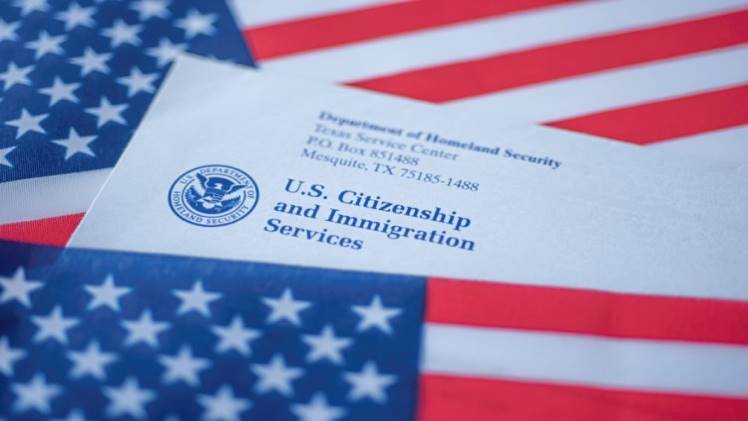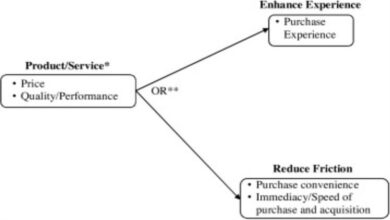How much does a US immigration lawyer charge?

Embarking on the path of U.S. immigration is a significant journey, and understanding the financial aspects of securing legal representation is a critical first step. The question often at the forefront is, “How much does a U.S. immigration lawyer charge?” In this guide, we delve into the complexities of immigration lawyer fees, unraveling the factors that influence charges and providing valuable insights for those navigating the intricate process of immigration to the United States.
As individuals seek legal guidance for visa applications, green card processes, or deportation defense, the financial component becomes a pivotal consideration. This guide aims to demystify the financial landscape, offering clarity on what influences fees and empowering individuals with the knowledge to make informed decisions about seeking legal assistance tailored to their U.S. immigration needs. Join us as we explore the factors shaping U.S. immigration lawyer charges and equip you with the understanding needed to navigate the financial intricacies of the immigration journey.
Factors Influencing U.S. Immigration Lawyer Charges
Understanding the intricacies of U.S. immigration lawyer charges involves a nuanced exploration of various factors that play a significant role in determining legal fees. In this section, we dissect these key factors, shedding light on the elements that can influence the financial aspects of securing immigration legal services.
Complexity of the Case
Impact of Case Intricacies on Legal Fees: The complexity of an immigration case is a central determinant of legal charges. Cases involving intricate legal issues, such as asylum applications with unique circumstances or complex family-based immigration matters, often demand more time and expertise, influencing overall costs.
Examples of Complex Immigration Cases and Their Cost Implications: To provide practical insights, we delve into scenarios where cases may escalate in complexity, such as navigating multiple legal grounds for asylum or addressing intricate family sponsorship issues. Understanding these examples aids individuals in gauging potential cost variations based on the intricacies of their case.
Attorney Experience and Expertise
Influence of Attorney Experience on Pricing: The experience and expertise of a U.S. immigration attorney significantly impact legal charges. Seasoned attorneys with a proven track record often command higher fees due to their in-depth knowledge and successful outcomes.
Balancing Experience with Affordability: While experience is valuable, finding a balance between the attorney’s expertise and affordability is essential. This section explores considerations for individuals to weigh the benefits of attorney experience against their budget constraints.
Type of Immigration Service Needed
Variations in Fees Based on Services: Different immigration services come with distinct fee structures. Whether it’s applying for a work visa, seeking family reunification, or defending against deportation, this subsection delineates the varying costs associated with different types of immigration services.
Understanding Cost Distinctions for Different Immigration Needs: By providing insights into the cost distinctions between various immigration services, individuals can align their budget expectations with the specific legal assistance they require.
Firm Reputation and Location
Influence of Law Firm Reputation on Pricing: The reputation of the law firm representing an individual can influence the overall cost. Esteemed firms with a history of successful cases may command higher fees based on their perceived value.
Regional Variations in Immigration Lawyer Charges: Immigration lawyer charges can also vary based on the geographical location within the United States. This section explores potential regional variations and how the location of the law firm may impact pricing.
Understanding these factors offers a comprehensive view of what contributes to U.S. immigration lawyer charges. By navigating these nuances, individuals can make informed decisions about the financial aspects of their immigration journey, ensuring that they align with both their legal needs and budgetary considerations.
Common Fee Structures
As individuals seek U.S. immigration legal services, understanding the prevalent fee structures employed by attorneys is pivotal. In this section, we delve into the common ways in which immigration lawyers charge for their services, offering insights into the various fee structures and their implications for individuals navigating the immigration process.
Hourly Rates
Explanation of Hourly Billing and Its Pros and Cons: Hourly rates are a common billing method where clients are charged based on the attorney’s hourly work. This subsection provides a clear explanation of hourly billing, outlining its advantages, such as transparency in tracking work hours, and its potential drawbacks, such as unpredictability in costs.
Average Hourly Rates for U.S. Immigration Lawyers: To provide a practical perspective, this section offers insights into the average hourly rates charged by immigration lawyers in the United States. Understanding these rates serves as a reference point for individuals estimating potential costs based on hourly billing.
Flat Fees
Overview of Flat Fee Structures and Their Advantages: Flat fees involve a predetermined, fixed amount for specific legal services. This subsection provides an overview of flat fee structures, highlighting their advantages, such as upfront cost clarity and predictability.
Examples of Common Immigration Services with Flat Fees: To illustrate the application of flat fees, we explore examples of common immigration services that are often charged on a flat fee basis. This insight aids individuals in understanding how this structure aligns with specific legal needs.
Retainer Fees
Understanding Retainer Agreements and Their Components: Retainer fees involve clients paying an upfront amount to secure ongoing legal services. This section elucidates retainer agreements, outlining their components, including the scope of services covered and potential additional charges.
Prospective Costs Associated with Retainer-Based Services: By shedding light on the prospective costs associated with retainer-based services, individuals gain an understanding of the financial commitment required for ongoing legal representation.
Navigating these common fee structures provides individuals with a foundation for comprehending how U.S. immigration lawyer charges are structured. By being familiar with these approaches, individuals can align their expectations with the specific fee structure employed by their chosen attorney, fostering transparency and informed decision-making in their immigration journey.
Additional Costs and Expenses
While understanding the core fee structures is crucial, it’s equally important to be aware of additional costs and expenses that may accompany the U.S. immigration process. In this section, we delve into the supplemental financial aspects individuals should consider when budgeting for immigration legal services.
Filing Fees and Government Costs
Clarifying Separate Government Fees from Attorney Charges: Immigration processes often involve filing fees and costs imposed by government entities. This subsection distinguishes between attorney charges and government-imposed fees, providing clarity on which expenses are within the attorney’s purview and which are mandated by the immigration authorities.
Highlighting Potential Additional Expenses in the Immigration Process: Beyond legal fees, individuals should anticipate potential additional expenses, such as document authentication, translation services, and other requirements imposed by immigration authorities. This information empowers individuals to budget comprehensively for their immigration journey.
Communication and Administrative Costs
Discussing Potential Charges for Communication and Administrative Tasks: Some law firms may charge for communication and administrative tasks not covered by standard legal fees. This section delves into potential charges associated with phone calls, emails, and administrative efforts, fostering transparency in fee breakdowns.
Transparency in Fee Breakdowns: It’s crucial for individuals to have a transparent breakdown of all potential charges. This subsection emphasizes the importance of open communication with the attorney to understand the scope of included services and any additional costs that may arise.
Understanding and accounting for these additional costs ensures a more accurate estimation of the overall financial investment required for U.S. immigration legal services. By being aware of potential expenses beyond attorney fees, individuals can approach their immigration journey with a comprehensive financial plan, minimizing unexpected financial burdens along the way.
How to Find Affordable U.S. Immigration Legal Services
Amidst the complexities of the U.S. immigration process, finding legal assistance that is not only effective but also aligns with one’s budget is paramount. In this section, we provide practical guidance on navigating the landscape to find affordable U.S. immigration legal services without compromising on the quality of representation.
Researching and Comparing Lawyers
Utilizing Online Resources to Research Attorneys: The digital age has transformed the way individuals can research and compare immigration attorneys. This subsection guides individuals on leveraging online resources, such as legal directories, client reviews, and law firm websites, to gather information about potential attorneys.
Factors to Consider When Comparing Immigration Lawyers: Effective comparison requires a focus on essential factors. This section outlines key considerations, including attorney experience, client testimonials, success rates, and any specialization in the type of immigration services needed.
Seeking Pro Bono and Low-Cost Legal Assistance
Overview of Pro Bono Services and Legal Aid Organizations: For individuals with limited financial means, pro bono services and legal aid organizations can be invaluable. This subsection provides an overview of pro bono initiatives and legal aid organizations operating in the United States, highlighting their role in providing affordable or free legal assistance.
Qualifications for Accessing Low-Cost Legal Assistance: Understanding the criteria for accessing low-cost or pro bono legal services is crucial. This section offers insights into the qualifications or eligibility requirements that individuals must meet to avail themselves of these services.
Finding affordable U.S. immigration legal services involves a proactive and informed approach. By conducting thorough research, comparing attorneys, and exploring pro bono options, individuals can identify legal assistance that not only fits their budget but also meets their specific immigration needs. This section empowers individuals to make strategic choices, ensuring that cost considerations do not compromise the quality and effectiveness of their legal representation.
Conclusion
Being aware of potential expenses beyond attorney fees, such as government-imposed costs and administrative charges, ensures a more accurate financial assessment. Moreover, the quest for affordable legal representation involves strategic research, utilizing online resources, and exploring pro bono options. By equipping individuals with the knowledge to navigate these financial intricacies, this guide aims to empower those pursuing U.S. immigration, fostering transparency, informed decision-making, and ultimately, a smoother journey towards realizing their American dreams.





